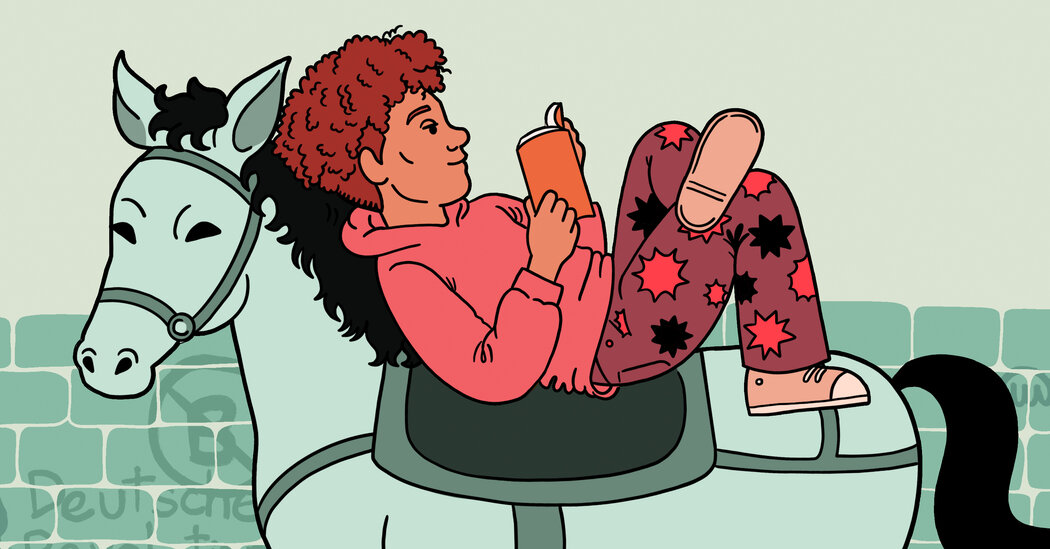
Sharon Cameron, the author of “Artifice” and other young adult novels, recommends some of her favorite Y.A. historical fiction.
I view history as the ultimate story and the ultimate mystery. It’s the vast accumulation of our shared humanity, and yet, so much of it has died in our memories.
Rescuing the past from oblivion is one reason I love writing young adult historical fiction. But historical books do so much more than just preserve a memory. They present the past with a purpose — by showing us the choices of yesterday, they challenge the choices of now.
Here are six Y.A. historical novels that dare us to question the past, and through that, help us chart the course of our future.
Berliners, by Vesper Stamper
“Berliners” takes a deep dive into the building of the Berlin Wall, and follows twin brothers who end up on opposite sides of the barrier. The novel is rich with well-researched detail, but it is the nuanced characters who really keep the pages turning. Separated by politics and a long stretch of concrete, both brothers try (and fail) to balance their new realities of East versus West. In a divided world that feels hauntingly like our own, “Berliners” asks the all-important question: What would you do, or not do, for your family?
Destination Unknown, by Bill Konigsberg
It feels a little unfair to have to call the era of my own teenage years “historical,” but while 1980s New York may be a familiar setting for me, the surprise in “Destination Unknown” lies in its deep, emotional resonance. In this love story set in the midst of the AIDS crisis, Konigsberg uses some truly stellar writing to capture how sickness and fear changed a time I lived through, and in ways I had never considered. This coming-of-age novel is best suited for mature Y.A. readers, or any reader ready to face our past and change our future.
The Witch of Blackbird Pond, by Elizabeth George Speare
This fast-paced book won the Newbery Medal in 1959, before “young adult” was a common label on shelves. Set in 1687, it tells the story of 16-year-old Kit, who is transplanted from sunny Barbados to the cold reality of Puritan Connecticut, where she is eventually put on trial for witchcraft. This is a book of its time. Slavery, for instance, is only handled around the edges. But the image of the “vivid, tropical bird” caged on a grim, gray shore is one that has stayed with me for a lifetime. Kit is a character still showing girls how to buck an unfair system. Her story helped make me a reader.
They Went Left, by Monica Hesse
“They Went Left” follows 18-year-old Zofia as she searches for her missing brother in a Europe torn by World War II, though ultimately, the person Zofia most desperately needs to find is herself. Expert plotting and some gorgeous prose make “They Went Left” a standout of Holocaust literature. This is not just a story about death and survival — it’s also about choosing to live on, even in the face of genocide, trauma and devastating loss. And what could be more relevant to our world today?
The Scandalous Sisterhood of Prickwillow Place, by Julie Berry
Who says that mining the past always has to be serious? This Victorian romp, which is part dark comedy and part lighthearted feminist manifesto, begins when the seven pupils of St. Etheldreda’s School for Girls decide to bury the body of their prickly headmistress — who has just succumbed to a bit of poisoned veal — hiding her death in a bid to live on their own. But independence (just like hiding bodies) is hard, especially if one of you is a murderer. This mystery easily ages down, and the audiobook is not to be missed, but the heart of the tale lies in the question of when we are, and when we are not, ready to take responsibility for our own lives.
For Lamb, by Lesa Cline-Ransome
Because I have deep roots in the American South, this book hit home for me in a personal way. Deftly told through multiple points of view, “For Lamb” describes one Black family’s struggle to survive and thrive in Jim Crow-era Mississippi, and sensitively explores an excruciating topic: female lynching. This is an essential read for anybody wanting to understand the Black experience and the love and pain that travels through the generations. It is also a book that made me look at the world and question the way I live in it today. And isn’t that exactly what good literature — and good historical fiction — is supposed to do?
